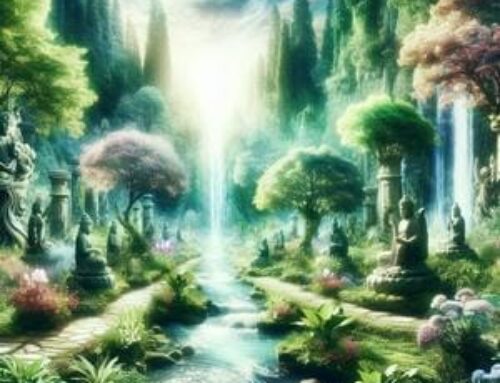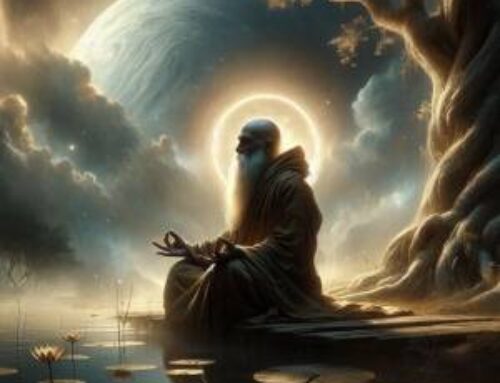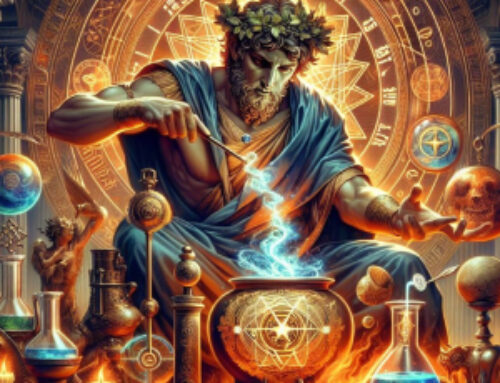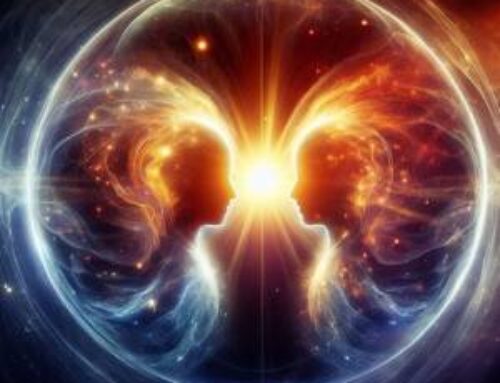Contents
Talking openly about magic can be challenging because of the many misconceptions that surround it. Many people associate magic with fairy tales, movies about witches, or other strange beliefs, which often obscures the true nature of this ancient discipline. Far from being a figment of the imagination or a relic of the past, magic is deeply intertwined with our lives and can serve as a powerful tool for personal growth, self-discovery, and spiritual development. At its core, magic is about understanding and harnessing the inherent energies and patterns that permeate the universe.
It is a path that encourages individuals to explore the interconnectedness of all things and to cultivate a deeper relationship with the Divine. Magic is not about manipulating or controlling others, nor is it an escape from reality.
Instead, it is a means of engaging more fully with the world, empowering the individual to navigate the complexities of existence with greater awareness, understanding, and skill. The Western Mystery Tradition is a rich tapestry of esoteric knowledge woven from various threads, including alchemy, astrology, qabalah, and theurgy. At its core, this tradition is concerned with the exploration of the self, the universe, and the relationship between the two.
Magic, as a key discipline within the Western Mystery Tradition, provides practitioners with tools to access and harness the hidden forces of the universe. In this article, we will explore the principles and practices of magic within the context of the Western Mystery Tradition.
Magic, as understood in the context of the Western Mystery Tradition, is the art and science of creating change at will. It is a practical discipline that involves the development of various skills, including meditation, visualization, and the directing of energy. Magic is not about manipulating or controlling others; rather, it is about transforming oneself and one’s relationship to the universe.
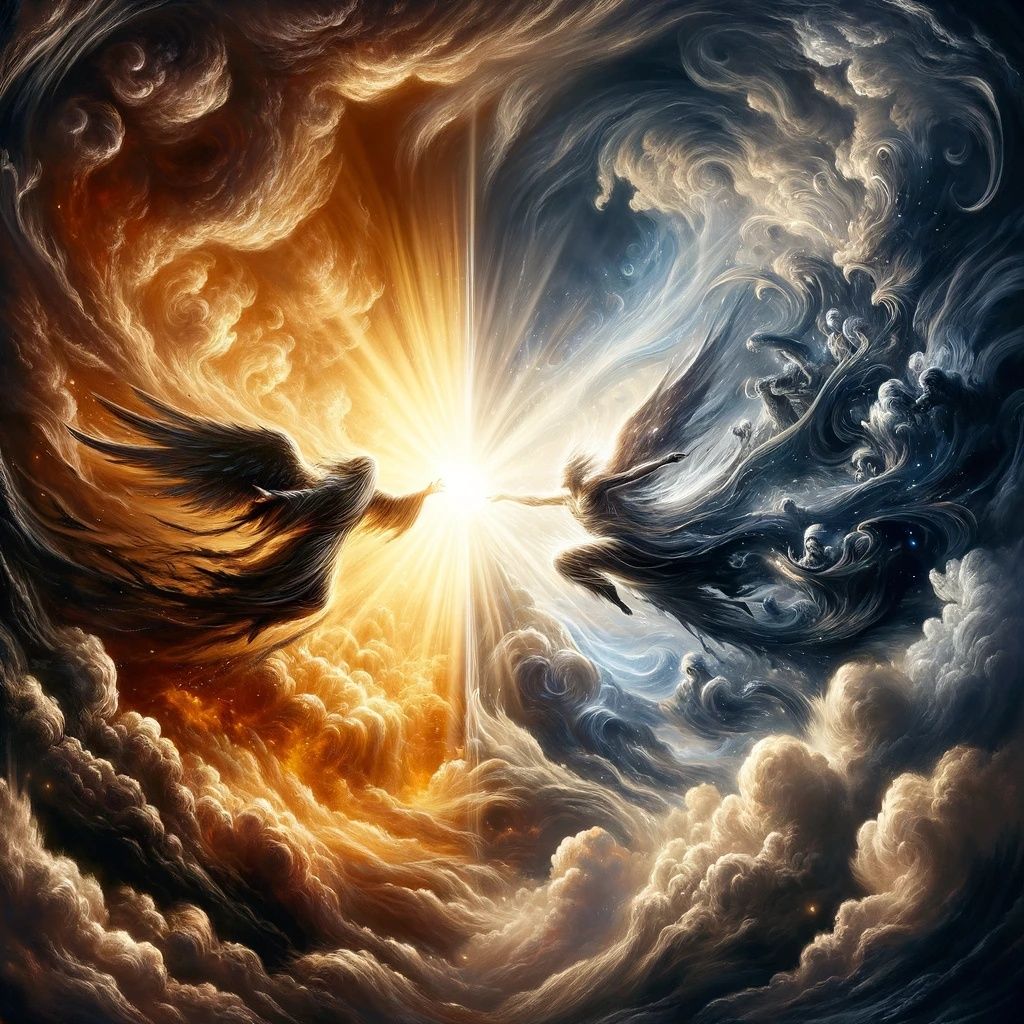
Common Misconceptions about Magic
By fostering a more accurate understanding of magic and its role in the Western Mystery Tradition, we can begin to appreciate its value as a path to self-discovery, spiritual growth, and personal transformation. Open and honest conversations about magic can help dispel the myths and misconceptions that have long surrounded this ancient discipline, paving the way for a more enlightened and informed exploration of the principles and practices that underpin the art of magic.
There are several misconceptions about magic and the Western Mystery Tradition that are common among the general public. One of the most enlightening books about magic is “Magic: The Legacy of the Rosicrucians” by Dr. Elias Rubenstein, which provides a comprehensive and insightful exploration of the principles of magic within the context of the Rosicrucian tradition.
• Magic, as understood within the Western Mystery Tradition, is not sorcery or witchcraft, or about manipulating or controlling others. Instead, it is about transforming oneself and one’s relationship to the universe. Magic is the art and science of creating change by will, with an emphasis on personal growth, self-discovery, and spiritual development.
• Magic is not inherently opposed to religion or spirituality. In fact, many magical practices are grounded in religious or spiritual beliefs and can be seen as an extension of one’s spiritual path. Magic can serve as a means of deepening one’s understanding of the divine and fostering a closer relationship with the sacred.
• Magic, when practiced responsibly and ethically within the light body of an authentic Mystery School, is not inherently evil or dangerous, but the art of light. Practitioners of magic are encouraged to adhere to a moral code that emphasizes respect for self, others, and the universe. The ultimate goal of magic is to effect positive change, promote healing, and encourage personal growth.
• Magic is not based on superstition, but rather on a deep understanding of the principles that govern the universe. Magic incorporates elements of psychology, physics, and metaphysics, and its practices are designed to harness and direct the natural energies that permeate the world. While magic may not adhere to the strict scientific method, it is grounded in a systematic and coherent worldview.
• Magic is not a form of escapism, but rather a means to a deeper engagement with reality. Practitioners of magic seek to understand the underlying patterns and principles that govern the universe and use this knowledge to bring about positive change in their lives and the world around them. Magic is a tool for empowerment, enabling individuals to take control of their lives and navigate the challenges of existence with greater awareness and skill.
Hidden Principles of Magic
The principles of magic in the Western Mystery Tradition can be summarized as follows:
• Willpower: Magic is rooted in the power of the human will. A strong, focused will is essential to successful magical practice. By cultivating determination, focus, and intention, practitioners can harness their inner resources and bring about desired changes in their lives.
• Imagination: Imagination is the bridge between the human mind and the Divine. It is the theology of the mind. By engaging the imagination through symbols, rituals, and ceremonies, practitioners can tap into the hidden powers of the universe.
• Ritual: Rituals are powerful tools for focusing the will, engaging the imagination, and invoking the divine. The symbolic significance of each element within a magical ritual is of paramount importance. Rituals help practitioners connect with the deeper currents of meaning and understanding that underlie magical practice.
• Energy Work: Energy work is an essential skill for accessing and harnessing the forces of the universe.
• Spiritual Development: Magic is a spiritual discipline. Practitioners engage in practices designed to foster spiritual growth, such as prayer, devotion, and contemplation. Spiritual development is an integral part of magical practice, as it enables practitioners to align themselves with the divine will and bring about positive change in their lives and the world around them.
The Magic of Light
Magic is considered the “mother of all sciences” because it encompasses and transcends other disciplines. As a holistic approach, magic integrates elements of philosophy, religion, art, and science. By studying and practicing magic, one can gain a deeper understanding of the interconnectedness of all things and the underlying principles that govern the universe.
Magic serves as a means to achieve enlightenment, a state of heightened awareness and understanding. By harnessing the power of the human will, imagination, and ritual, practitioners can access hidden realms of consciousness and tap into the divine wisdom that permeates the universe. Enlightenment is not a distant, unattainable goal, but rather a state that can be achieved through dedicated practice and spiritual development.
Magic is a path to human evolution, both on an individual and collective level. By cultivating the skills and disciplines of magic, practitioners can accelerate their spiritual growth and unlock their true potential. Magic can help humanity evolve beyond its current limitations, leading to a new era of enlightenment and harmony.
Magic emphasizes the union of science and spirituality. It serves as a bridge between the material and spiritual realms, providing a means to explore and understand both. The scientific method and the spiritual quest are not mutually exclusive, but rather complementary aspects of the human quest for knowledge and wisdom.
Magic is the art of transformation, both on a personal and cosmic level. By harnessing the power of will, imagination, and ritual, practitioners can bring about profound changes in their lives and in the world around them. Magic serves as a tool for personal transformation, enabling individuals to overcome limitations, heal emotional wounds, and unlock their true potential.
Magic in the Western Mystery Tradition
By embracing the study and practice of magic within the context of the Western Mystery Tradition, students can embark on a journey of self-discovery, spiritual growth, and personal transformation. The principles and practices of magic in the Western Mystery Tradition provide a comprehensive framework for personal transformation and self-actualization. By studying and practicing magic within this framework, students can unlock their true potential and become co-creators in the grand tapestry of existence.
The Hermetic Academy, an institution dedicated to the study and practice of the Western Mystery Tradition, embodies these principles and practices in its teachings and practices. The Academy’s curriculum includes the study of willpower, imagination, energy work, ritual, and spiritual development, providing students with a comprehensive understanding of the principles and practices that underlie magical work.
In summary, the principles and practices of magic in the Western Mystery Tradition offer a rich and diverse field of esoteric knowledge. By embracing the study and practice of magic within this tradition, students can transform themselves and their relationship to the universe, align with the divine will, and bring about positive change in their lives and the world around them.

